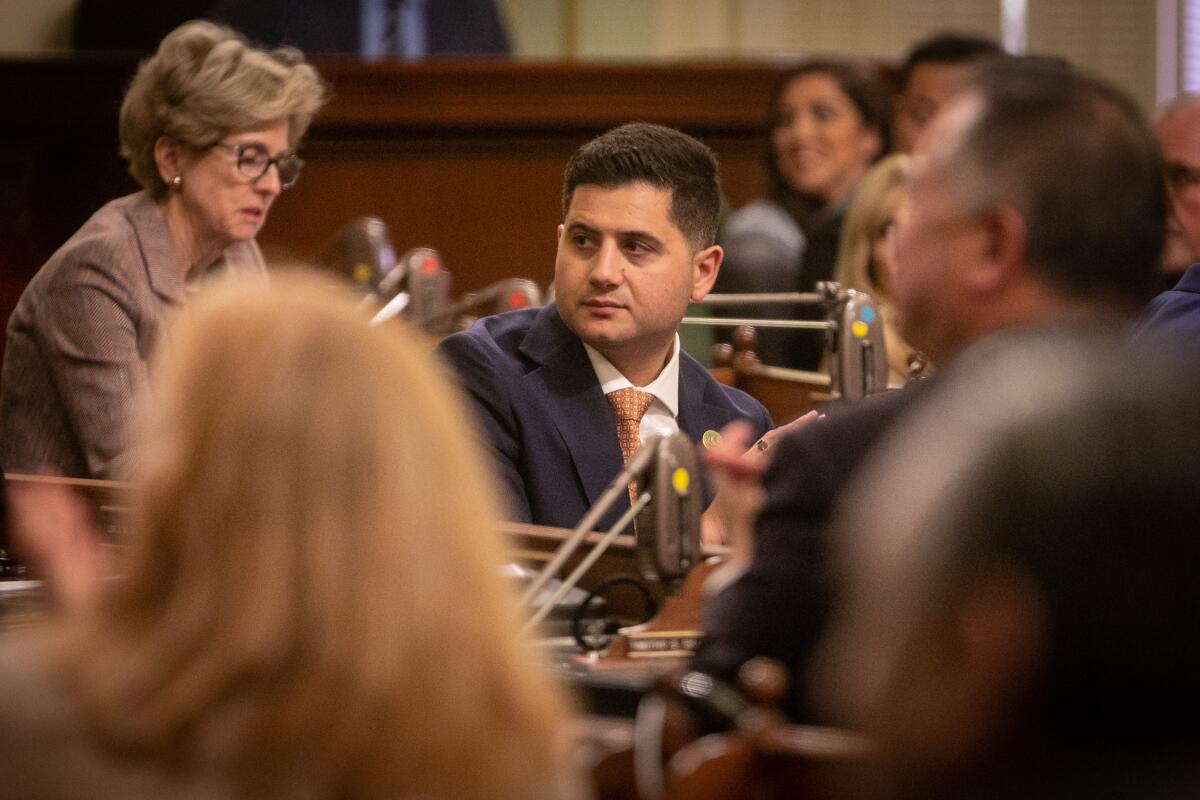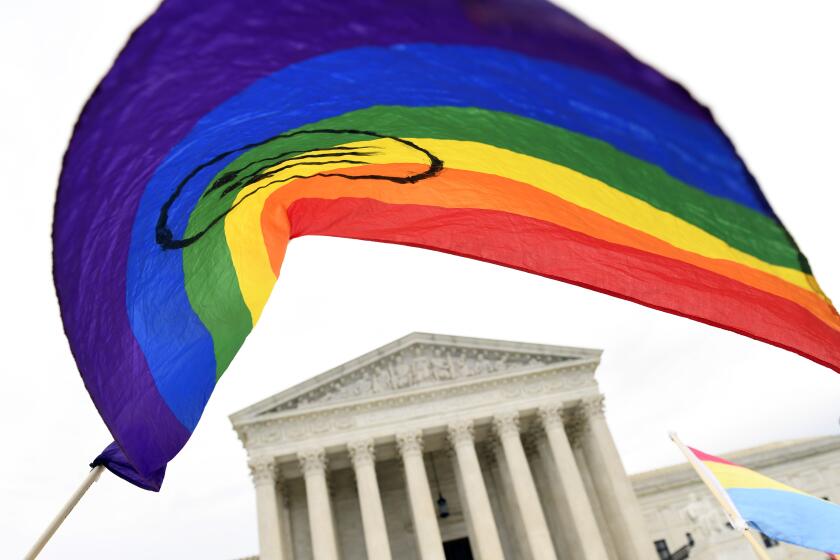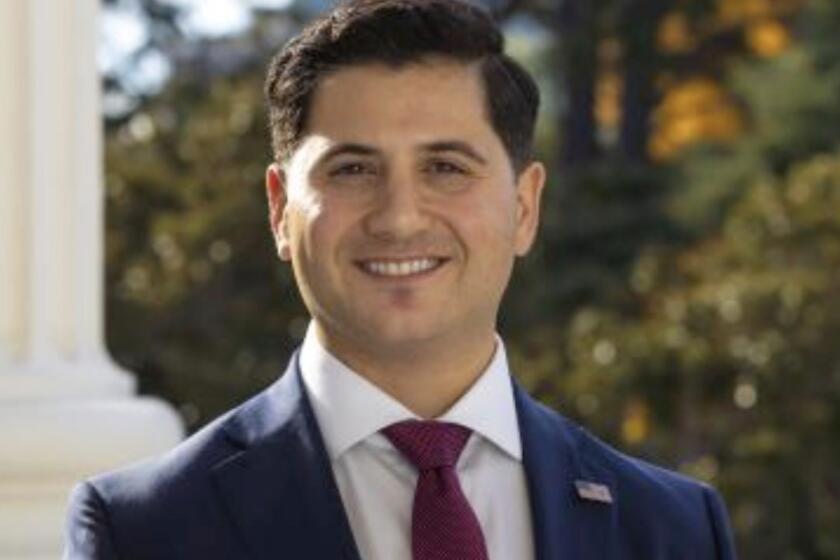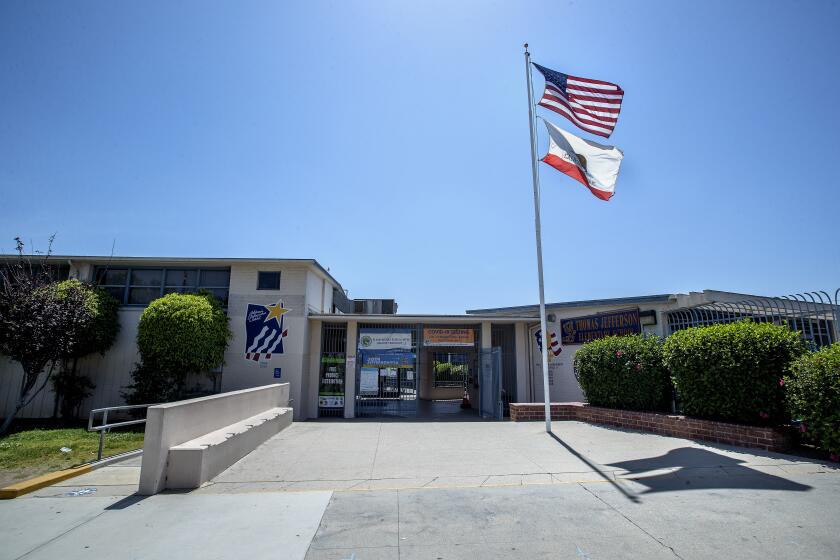California bill requiring schools to out transgender students to parents dies

- Share via
A bill that would have required California school officials to alert parents if their child identified as gender-nonconforming or transgender won’t get a committee hearing, effectively killing the controversial legislation.
Assembly Bill 1314, introduced by Assemblymembers Bill Essayli (R-Riverside) and James Gallagher (R-Yuba City), would have required school districts to notify parents in writing within three days if a student “is identifying at school as a gender that does not align with the child’s sex on their birth certificate.”
The bill sparked backlash from LGBTQ activists and organizations, who warned that the legislation could place students in potentially dangerous situations by outing students who may be at risk in abusive or violent homes.
Bills that would restrict the rights of transgender people have moved through state houses across the country. And now, an anti-trans bill has been introduced in California.
AB 1314 was assigned to the Assembly Education Committee, but the chair of the committee, Al Muratsuchi (D-Torrance), announced Monday that he would not set a hearing date for the bill, meaning it was effectively dead before being considered for a vote.
“This bill would require educators to ‘out’ a student to their parents, even when the student does not feel comfortable coming out, potentially forcing them into an unwelcoming or abusive home,” Muratsuchi said in a statement. “All students deserve to be respected and supported for who they are, including at their schools.”
Essayli blasted the decision and urged parents to bring lawsuits against school districts.
“While Democrats have the votes to kill my bill in Sacramento, they do not have the votes to suppress parents’ voices at the local level,” he said in a statement. “I encourage parents to continue bringing lawsuits against their school districts challenging existing policies that allow children to be socially transitioned at school without parental consent.”
A new California bill would require schools to notify parents if a student is identifying as a gender that doesn’t align with official records.
Essayli promoted the bill in March alongside a Jurupa Valley High School teacher, Jessica Tapia, who said she was fired after refusing to follow current law, which prevents school officials from disclosing a student’s gender identity to parents without the student’s consent.
Gallagher said the decision highlighted the division between Republican and Democratic legislators.
“Democrats’ refusal to even hear our bill confirms they are only interested in dictating a one-size-fits-all policy from Sacramento and shutting down anyone with a different point of view,” Gallagher said in a statement posted on Facebook. “This decision confirms there are two fundamentally different views of education: Republicans want to empower parents to be involved with their children’s upbringing and education, while Democrats see parents as a threat to be isolated and ignored.”
In his statement, Muratsuchi called the bill “bad policy,” arguing that giving it a hearing would also provide a “forum for increasingly hateful rhetoric targeting LGBTQ youth.”
In California schools, teachers do and must say the word “gay” as well as lesbian and transgender in lessons about nonconforming expressions of gender.
The California Legislative LGBTQ Caucus applauded the decision.
“The California Legislature should not provide a platform for anti-LGBTQ+ legislation that threatens the health and well-being of LGBTQ+ youth and empowers those who wish to cause harm,” the caucus said in a statement.
The caucus added that while it supported the vision Gallagher and Essayli “have of a California where all parents are embracing and understanding of all LGBTQ+ youth in their journey to find their authentic selves,” the bill ignored the dangerous environment some LGBTQ students face when coming out.
“Not all trans or non-binary youth have such loving and supportive families,” the caucus said. “The reality is that LGBTQ+ youth oftentimes face harassment, isolation, bullying, and even physical harm from their own families.”













